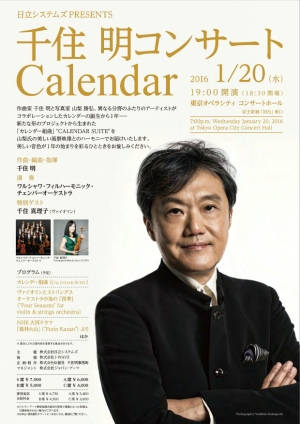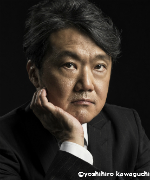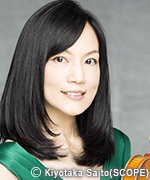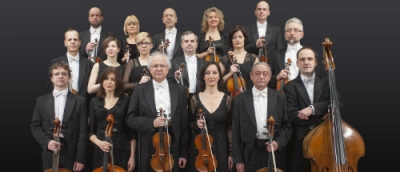Akira Senju Concert Calendar

チケット詳細Ticket Information
[Ticket price]
S:¥7,500 A:¥6,000 B:¥5,000 C:¥4,000 (YEN)
[How to purchase tickets]
1. Telephone orders
Japan Arts Pia Call Center: 03-5774-3040
(Open 10:00 a.m. – 6:00 p.m. daily, except in the New Year holiday period)
*To order from the call center, you must be able to provide a mailing address in Japan or pick up the tickets at a convenience store in Japan.
*Operators speak English.
2. E-mail Order
*Anyone can order by e-mail by filling in the required items on the specified form.
*Credit card payment is required. Tickets will be picked up at the venue on the day of the performance. The same-day pick-up counter opens 45 minutes prior to the start of the performance.
*Your personal information will not be used for any purpose other than processing this ticket order.
Notes:
*Please be aware that the requested tickets may no longer be available.
*Inquiries made on Saturday, Sunday, holidays, or during the summer or
winter business holidays, will be answered on or after the next business day.
チケット購入はこちら
[Group tickets sales]
Please inquire about group sales if you are ordering 10 or more tickets.
[Students]
Reservations for student tickets at half price each rank can be made from Nov. 20 (10a.m.) if seats are available the day before.
Qualified Students: Students below age 25 only.
Please present your student ID at the door on the day of the concert.
(Those without a student ID may be asked to pay the balance of the regular ticket price.)
[Please read the following information before purchasing tickets.]
1. Programs etc. are subject to change in case of unavoidable circumstances.
2. Purchased tickets may not be canceled or changed, except when the performance is canceled.
3. Tickets will not be reissued under any circumstances. Please take care not to lose your tickets.
4. Preschool children will not be admitted. In the case of ballet performances, children 4 years old and over will be admitted.
5. One ticket per person is required for admission to the venue.
6. All seats are reserved. Please be seated in your designated seat.
7. Photography, sound and video recording, use of mobile phones etc. in the venue are strictly prohibited.
8. Resale of tickets through internet auction sites etc. is not permitted, as problems can result.
チケット残席状況
残席あり / × 売り切れ
特別割引
- ◎シニア・チケット=65歳以上の方はS席とA席が会員料金でお求めいただけます。
- ◎車椅子の方は、本人と付き添いの方1名までが割引になります。(ジャパン・アーツぴあコールセンターでのみ受付)
その他プレイガイド
- チケットぴあ t.pia.jp 0570-02-9999
[Pコード●●●-●●●] - イープラスeplus.jp
- ローソンチケット0570-000-407[Lコード●●●]
- 東京文化会館チケットサービス https://www.t-bunka.jp/tickets/ 03-5685-0650
- サントリーホールチケットセンター https://www.suntory.co.jp/suntoryhall/purchase/ 0570-55-0017
- 紀尾井ホールチケットセンター https://kioihall.jp/tickets 03-3237-0061
- 東京オペラシティチケットセンター https://www.operacity.jp/concert/ticket/ 03-5353-9999
- 横浜みなとみらいホールチケットセンター http://minatomirai.pia.jp/ 045-682-2000
チケット購入にあたっての注意事項
曲目・演目Program
CALENDAR SUITE
‘Four Seasons’ for violin & strings orchestra
‘Furin Kazan’
プロフィールProfile
Akira Senju, Composer・Arrangement・Conductor

Akira Senju is widely regarded as one of the most prominent Japanese composers living today.
Senju was born in Tokyo, Japan in 1960. After having studied in the Faculty of Technology at Keio University, he decided to study composition formally and entered the Tokyo National University of Fine Arts and Music (currently known as the Tokyo University of the Arts), where he studied with Hiroaki Minami and Toshiro Mayuzumi. He completed his master’s degree in composition with highest honors. The work for his completion ‘EDEN for computer’ received recognition and was purchased by the university and became part of the permanent collection of the University Art Museum..
Senju started his career as a composer, arranger, and music producer while in school, and since then has been remarkably active and prolific across genres. Probably best known for his orchestral works, he has written wide range of music from concert pieces to soundtracks to operas to pop music. Among them are ‘Four Seasons’ for violin and string orchestra (2004), commissioned by Tokyo International Airport; Japan Symphonic Poem (2005), commissioned by NHK; Opera ‘Sumidagawa’ (2007), commissioned by Tokyo Bunka Kaikan; Opera ‘Man’y?sh?’ (2009, 2011), commissioned by Tokyo Bunka Kaikan; soundtracks for films ‘226,’ ‘The Mystery of Rampo,’ ‘Aiwo Kouhito,’ ‘Yomigaeri,’ ‘Nada Soso’; TV dramas ‘Ienakiko,’ ‘Honmamon,’ ‘Suna No Utsuwa,’ ‘Furinkazan (NHK Taiga Drama),’ ‘GOLD,’ ‘Japanese Americans,’ ‘Ashio kara Kita Onna,’ ‘Leaders’ “Ryusei Wagon”; TV documentary ‘The Mystery of Stradivarius (NHK Special)’; TV animation series ‘Mobile Suit Victory Gundam,’ ‘The Snow Queen,’ ‘Fullmetal Alchemist: Brotherhood,’ ‘Valvrave the Liberator’; animated films ‘Tales of Vesperia: The First Strike,’ ‘Magic Tree House’; among many others. His latest opera ‘Taki no Shiraito’ was premiered in a fully staged and costumed production early this year and received public and critical acclaim..
Senju’s orchestral works have been recorded by many distinguished orchestras worldwide, including the Philharmonia Orchestra, Slovak Philharmonic, Cracow Radio Symphony Orchestra, Czech Philharmonic, Warsaw Philharmonic Orchestra, Moscow International Symphony Orchestra, Yomiuri Nippon Symphony Orchestra, NHK Symphony Orchestra, Japan Philharmonic Orchestra, New Japan Philharmonic, and conducted by such prestigious conductors as Vaclav Neumann, Charles Dutoit, Seiji Ozawa, to name a few. He has also collaborated with various internationally renowned artists across the boundaries, including Nuno Guerreiro, Origa, Kurt Elling, Jane Birkin, Sissel and Zamfir..
Senju has released dozens of solo and soundtrack albums on virtually all the major labels in Japan, including Universal Music, EMI, Sony Music, and so on. His music has attracted numerous awards and prizes, including three Japan Academy Prizes for Music (in 1997, 1999 and 2004)..
Senju is also an active lecturer and educator. He has served as an instructor at the Tokyo National University of Fine Arts and Music (1991-93) and a visiting lecturer at Keio University (1994-95, 2006), and has been serving as a visiting professor at the Tokyo College of Music (since 2007). He has appeared on many culture programs on TV and other media, including host appearences on a popular weekly educational TV program, ‘Nichiyo Bijutsukan (Sunday Art Museum)’ on NHK (2011-13)
Mariko Senju, Violin

Mariko Senju began studying violin under Saburo Washimi at the age of three and under Toshiya Eto at the age of twelve. In 1973 she won first place in the elementary school division of the All Japan Students Musical Competition. In 1975 she performed a Bach Concerto with the NHK Symphony Orchestra for its first Young People’s Concert. This marked her debut as a professional violinist.
In 1977 she won first place in the violin division of the 46th Music Competition of Japan. In 1979 she placed fourth at the 26th Paganini International Violin Concours, and in 1981 she received special commendation in the 26th Foreign Placement Concours (Japan).
A 1985, she graduated from Keio University’s Department of Literature With a B. A. in Philosophy, and in the following year she passed an audition held by the conductor Giuseppe Sinopoli. In 1987 she made her London debut playing Mendelssohn’s Violin Concerto in a subscription concert of the Philharmonia Orchestra conducted by Sinopoli. In 1988 she received high acclaim for her performances with the Santa Cecilia Music Consevatory’s orchestra, conducted by Sinopoli.
Her CDs include ‘Mozart: Violin Concertos,’ ‘Vivaldi: The Four Seasons,’ ‘Lalo/Saint-Saens: Violin Concertos’ and ‘Dvorak/Bruch: Violin Concertos’ (with the Prague Symphony Orchestra, conducted by Zdenek Kosler). Her eighth CD, ‘Ysaye: Six Sonatas for Violin Solo (op.27),’ received the 1993 award for distinguished artistic works from Japan’s Agency for Cultural Affairs.
In 1990, Senju started regularly producing her own concert series, in which she has performed violin concertos by Beethoven, Brahms, Bach, and Sibelius. In 1991 she held a concert series marking the 200th anniversary of Mozart’s death in which she performed all of Mozart’s violin concertos. In 1993 she enjoyed great success in an ambitious series of performances of all of Ysaye’s Sonatas for Violin Solo.
In 1994 she won the Muramatsu Award. In 1995, which marked the 20th anniversary of her musical career, she gave a series of recitals in London. In January, 1996, she appeared in Prague as a soloist at a subscription concert of the Prague Symphony Orchestra. In April, 1997, her CD, ‘Paganini: 24 Caprices’ was released nationwide in the U.S.
She performed Ysaye’s Six Sonatas for Violin Solo, Op. 27 in Weill Recital Hall at Carnegie Hall in February, 1999 with great success.
In 2000, which marked the 25th anniversary of her debut, she released two CDs entitled, respectively, ‘Arias’ and ‘Works for Violin Solo by 3 Composers.’ Another CD scheduled for release this fall will contain Beethoven’s Violin Concerto, Op. 61 and Mendelssohn’s Violin Concerto, Op. 64, with the Czech National Symphony Orchestra, conducted by Paul Freeman.
Mariko Senju has long been involved with music in Prague. In 1991 she recorded violin concertos by Dvorak and Bruch with the Prague Symphony Orchestra, conducted by Zdenek Kosler, and in 2001, violin concertos by Sibelius and Tchaikovsky with the Czech National Symphony Orchestra, conducted by Vladimir Valek.
She appeared as a soloist during a concert tour of Japan by the Suk Chamber Orchestra in the fall of 2001 – as she had done several times previously. She performed with the Prague Philharmonia, conducted by Jiri Belohlavek in January, 2002. She is also scheduled to appear as a soloist on tour in Japan with the Prague Symphony Orchestra in 2003.
主催・協賛
Presented by Hitachi Systems,Ltd
Supported by J-WAVE.Inc/ Densosha Corporation. / Japan Arts


